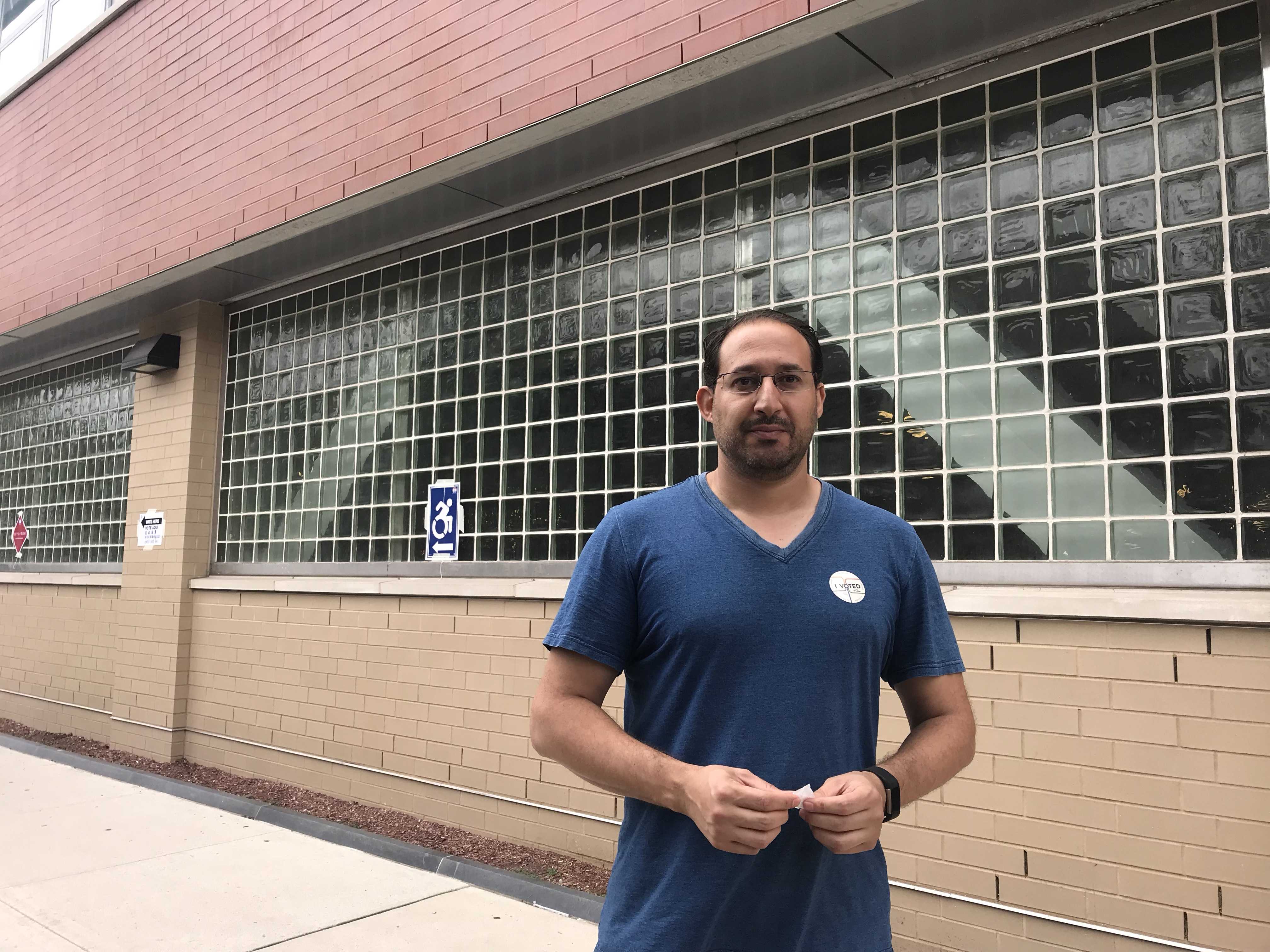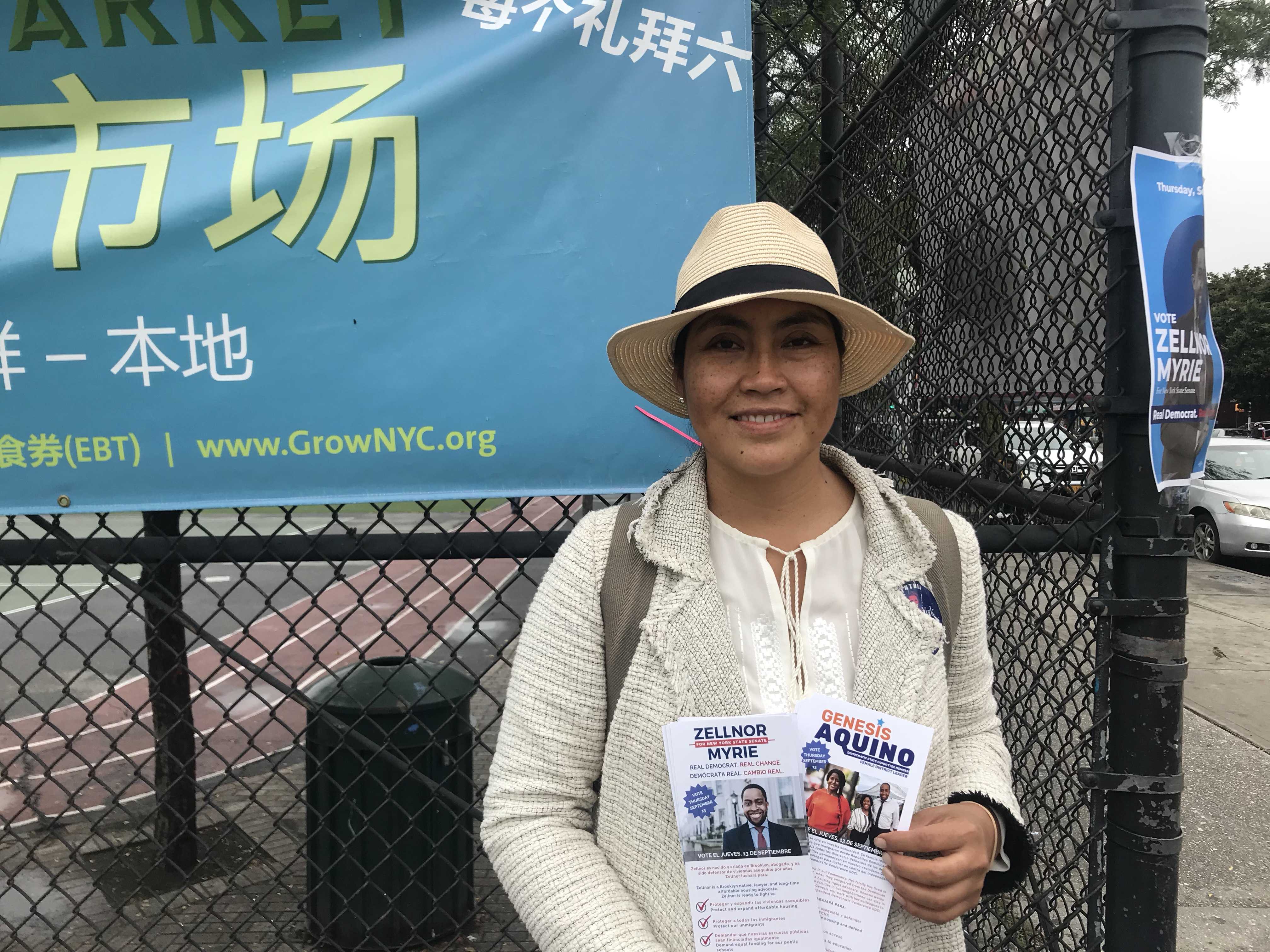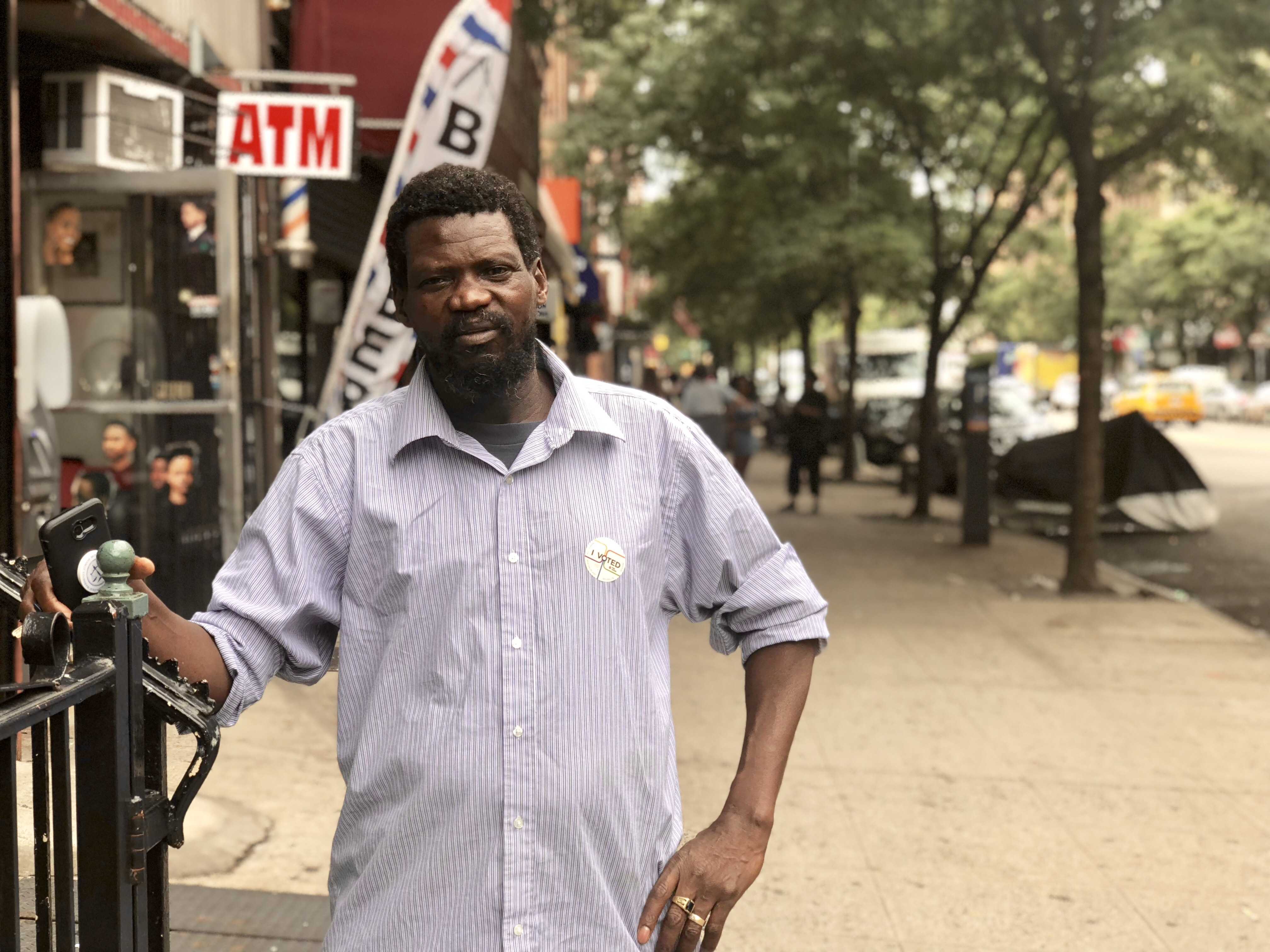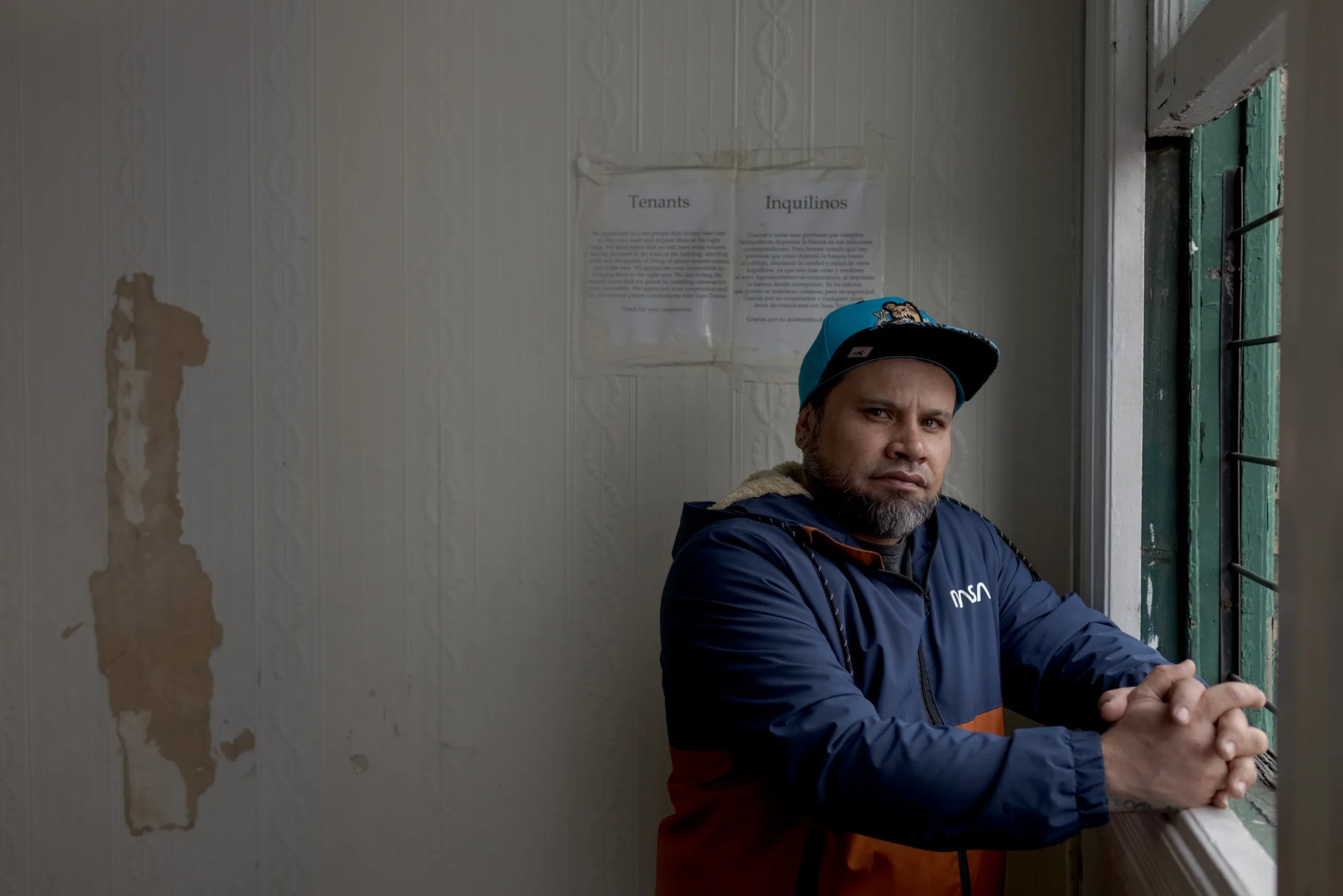In races both large and little-noticed, immigrants were mounting challenges during this energized election year for the local but often influential posts that form the infrastructure of New York’s Democratic Party.
Federal offices weren’t on the ballot in this primary for state office, but interviews Documented conducted across the city with immigrant voters showed that worries about President Donald Trump’s harsh anti-immigration stance were a driving force for many.
Or as Ana Castillo, 59, a home attendant who came from the Dominican Republic nine years ago, put it in an interview outside her Jackson Heights polling site: “This election is more desperate because we’re seeing things we never saw in this country.”
For Kashif Hussain, a Pakistani-American who grew up in Brooklyn’s Little Pakistan after moving to the U.S. from Saudi Arabia when he was a teenager, the response was to seek an obscure but important party office: He was looking to replace a veteran Democratic district leader in the Ditmas Park-Park Slope 44th Assembly District.
Hussain, an engineering consultant and auxiliary police sergeant, faced Douglas Schneider, a well-connected community activist and lawyer from Park Slope. Both men want to follow Jacob Gold, who stepped down after 43 years in the post.

Hussain lost to Schneider, with 45.75 percent of the vote to 53.74 percent.
As voters were still going to the polls, Hussain said he’s pleased with the way fellow Pakistanis have reacted to his candidacy.
“I’ve noticed the sense of pride they see in my candidacy and how happy they are to see one of their own actually contest elections,” he told Documented. “And I wholeheartedly believe that today we will see an increase in numbers from those communities that usually may not vote in primaries.”
Such races don’t make the headlines like Gov. Andrew Cuomo’s easy defeat of challenger Cynthia Nixon, the former Sex and the City actress, or even Brooklyn City Council member Jumaane Williams’ much closer loss to incumbent Lt. Gov. Kathy Hochul. But races to control pieces of the county political machinery cement paving stones that rising immigrant communities can traverse to judgeships, legislative seats and then the power of city and statewide offices.
The influence of immigrant voters was seen in some of the statewide races. For example, Zephyr Teachout, running for state Attorney General in a race that city Public Advocate Letitia James won, got attention by saying she would prosecute U.S. Immigration and Customs Enforcement, a federal agency. Nixon called for ICE to be abolished. And Amine Zouiten, a 42-year-old freelance consultant who migrated from Morocco, said he voted for both Teachout and Nixon.
“ICE is just too much; they cross the border of being human,” he said after voting in Astoria. “They have unethical ways to get rid of human beings.”

Zouiten said that while every election is important, “It is different in this political atmosphere.” He added: “My vote will matter, even if who I voted for doesn’t win. It shows that we care about these issues.”
Yudalmy Llanes Jenky, 50, an accountant who came to the United States from Cuba in 2005, also said immigration is his priority.
“The issue right now that I really care about is immigrants . . . . They do everything — they work, they fund taxes, and now they want to deport them,” he said.
One Peruvian immigrant who asked not to be identified said he was afraid to leave his house because of ICE. But wasn’t he a citizen if he voted?
“I know but then I have to carry my papers and all that,” he said. “If I don’t have my papers they might take me in and lock me up.”
As always in New York, new immigrant groups were becoming part of the city’s political fabric – and Claudia Galicia, president of the Sunset Park Latino Democrats, was part of that effort.
“Our state senator here in Sunset Park, Jesse Hamilton, has not paid any attention to this immigrant community even if a big chunk of it is Haitian and Mexican,” Galicia, who moved from Mexico to the United States when she was 12 years old, told Documented after she voted in Sunset Park. “I feel we need to make a statement and vote people out who have not stopped and think about their constituents like myself with family members that are undocumented.”
Galicia credited Nixon with pushing Cuomo on issues important to immigrants, such as support for granting driver’s licenses to the undocumented.

“I feel very fortunate to be able to vote in this climate and send a message that immigrants are important,” she said. “Maybe half of my family cannot vote but I have the power to turn things around.”
And indeed, Hamilton was defeated by Zellnor Myrie, 54 percent to 46 percent.
Hamilton was one of eight Democrats who had aligned with the Republican caucus of the State Senate in the Independent Democratic Conference, or IDC. Incensed Democratic primary voters ousted five other IDC senators as well, including Sen. Marisol Alcántara, who had been counting on votes in Washington Heights’ Dominican community in her race against challenger Robert Jackson, and Sen. Tony Avella of Queens, defeated by former City Comptroller John Liu in his bid to return to elected office.
Jackson Heights activist Jessica Ramos easily defeated another IDC incumbent, Sen. Joseph Peralta. She emphasized her family’s immigrant roots: “Jessica’s mother crossed the Mexican border by herself at 24, and her father was arrested in a workplace immigration raid in the early 1980’s and spent days held in a detention center,” her campaign biography says.
Galicia is also backing Genesis Aquino, a candidate for Democratic district leader in Assembly District 51 in Sunset Park. She ran against a 14-year incumbent Arelis Martinez in an area that has large immigrant populations from Mexico and China.
“I want my people to be represented well by the judges in housing court, and to have a fair system. That’s the reason that I’m running,” Aquino said in an interview near her polling station in the district. “I am running because our district has the lowest amount of representation in the Brooklyn Democratic Party.”
Aquino, who came to the U.S. from the Dominican Republic in 2001 when she was 11, works at a nonprofit housing organization. She said that experience made her concerned about the way judges treat people in Housing Court. “I want my people to be represented well by the judges in housing court, and to have a fair system,” she said. “That’s the reason that I’m running.”
At the time of publication, Aquino and Martinez were separated by less than one percent of the vote.
Samara Ahmed, Emlyn Cameron, Hannah Critchfield, Haleluya Hadero, Melody Jiang, Lara Kleinschmidt, Isabelle Lee, Conchita Margaret, Farah Otero-Amad, Jeff Parrott, Alexandra Pattillo, Andrea Sahouri, Isaiah Smalls, Giacomo Tognini, and Emily Tyree contributed reporting to this story.















